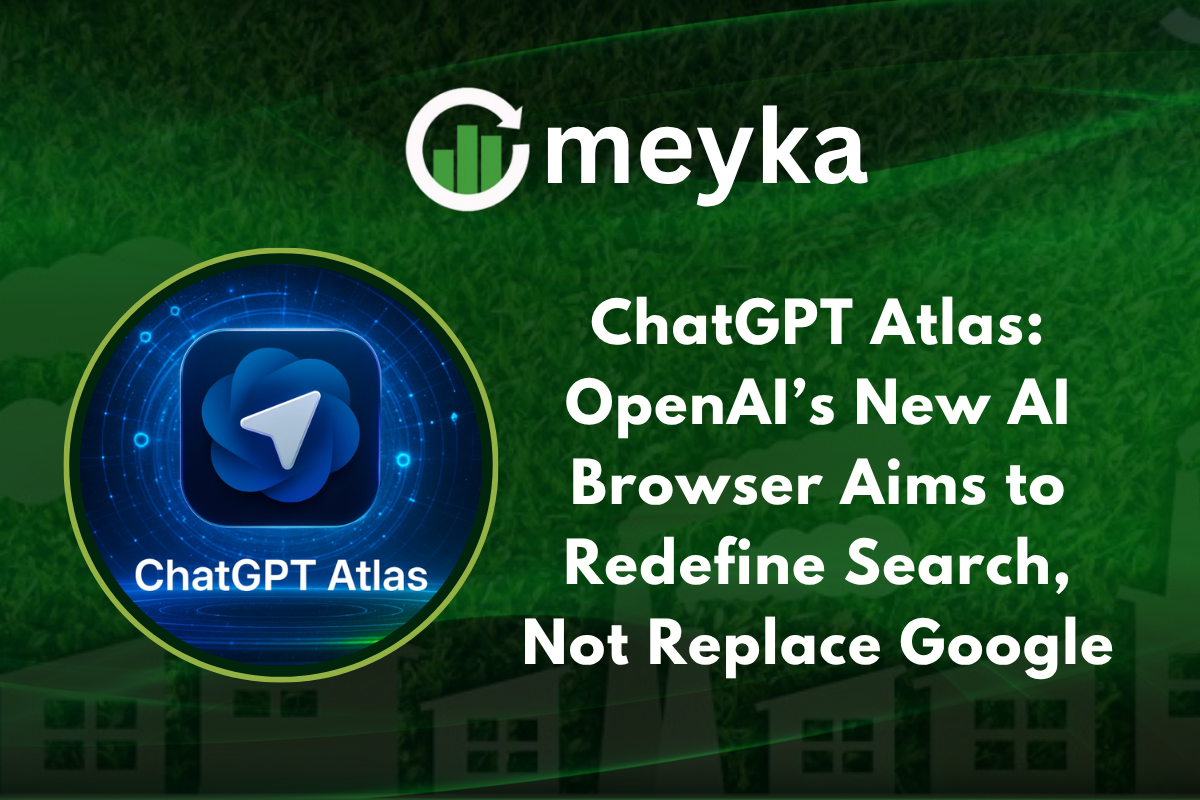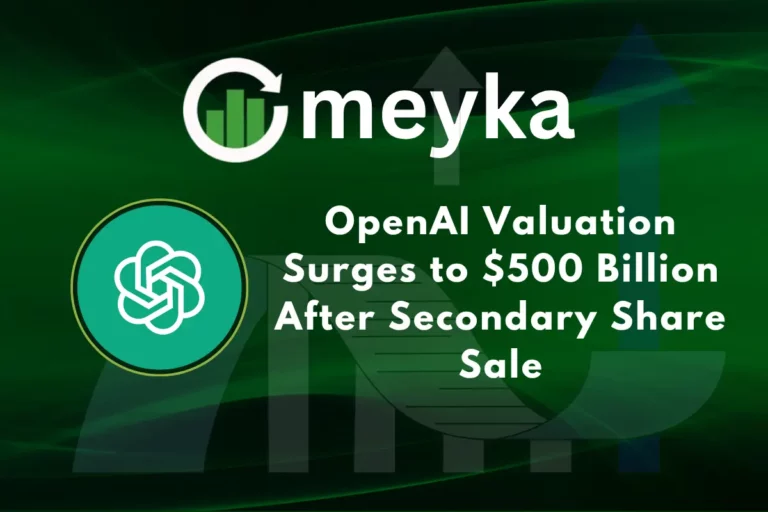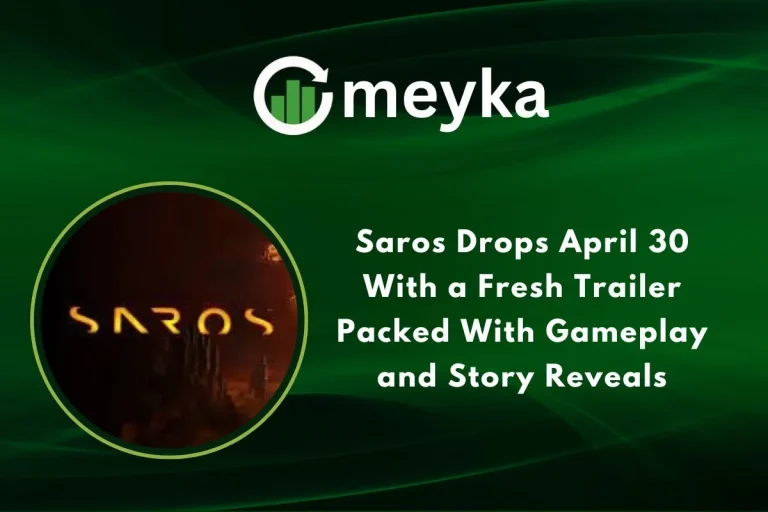ChatGPT Atlas: OpenAI’s New AI Browser Aims to Redefine Search, Not Replace Google
CHATGPT ATLAS is OpenAI’s new AI browser. It mixes conversational AI with live web access. OpenAI says Atlas helps users explore and understand the web, not merely list links. The goal is to make browsing feel more natural, helpful, and context-rich. Early coverage shows excitement and careful debate about how Atlas fits with search giants.
What Is ChatGPT Atlas and How Does It Work?
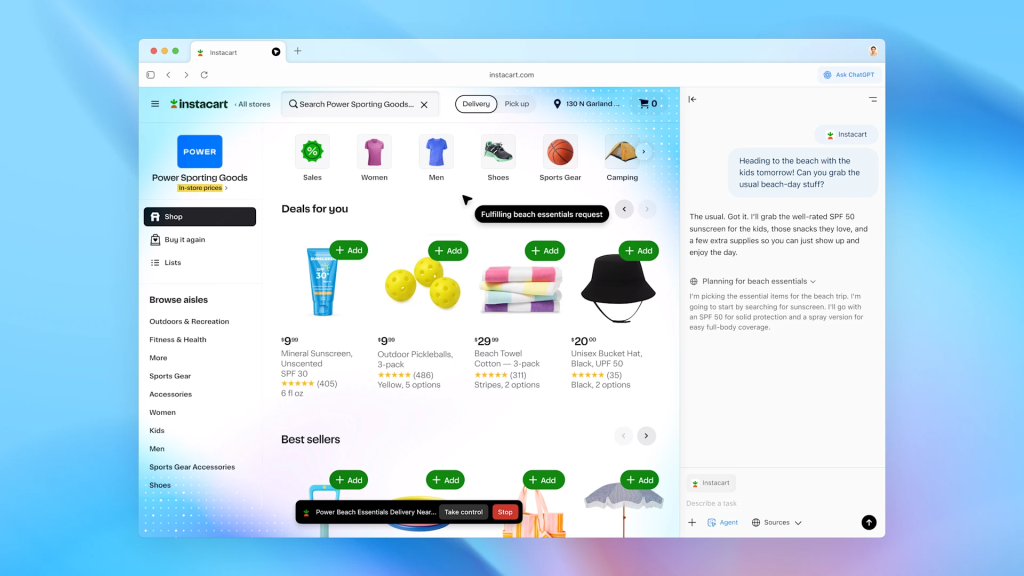
CHATGPT ATLAS is a browser built around an AI assistant. It lets users ask questions, summarize pages, and pull live sources. Atlas uses models that read and cite web content in real time. Instead of showing a long list of links, it gives direct answers, context, and follow-up tools. TechCrunch explains that Atlas combines browsing, search, and ChatGPT’s chat interface into one flow.
What makes ChatGPT Atlas different from regular browsers? Atlas answers in natural language, cites live sources, and helps users dig deeper without tab overload.
OpenAI’s Vision Behind ChatGPT Atlas
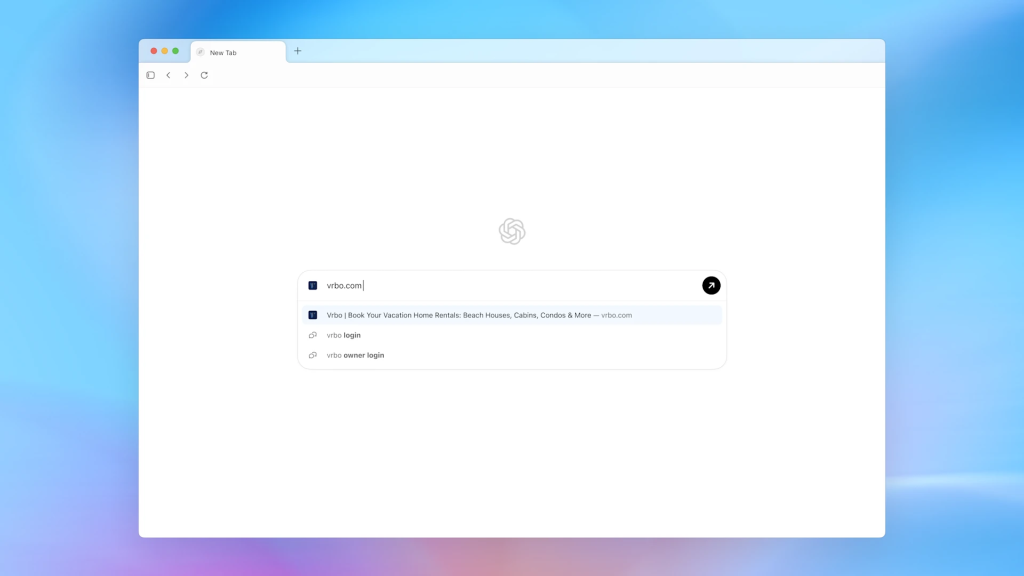
OpenAI frames Atlas as part of its mission to make AI a natural interface for knowledge. The official post says Atlas helps people think and explore. OpenAI stresses it is not trying to kill Google. Instead, Atlas is meant to offer a new way to navigate and use the web, especially for tasks that need reasoning and synthesis. The Guardian noted this is about reshaping how people search and learn online.
Why is OpenAI entering the browser space? To build tools that understand context and help users make sense of information, not just find links.
ChatGPT Atlas and the Future of AI Browsing
Atlas aims to harness generative AI for real-time help. It supports multimodal inputs, so users can ask with voice or images. Atlas summarizes pages, shows sources, and keeps a conversation going as you dig deeper.
TechCrunch highlights the browser’s ability to interpret intent, surface insights, and cite live content. The Washington Post frames Atlas as an “assistant for the web,” one that helps users learn and act with more clarity.
Can ChatGPT Atlas replace traditional browsers like Chrome or Safari? No, OpenAI says Atlas complements them, offering a different, AI-first way to explore the web.
Key Features That Make ChatGPT Atlas Stand Out
- AI-driven answers: Atlas returns direct answers instead of only link lists.
- Contextual browsing: It summarizes pages and shows live citations.
- Conversational flow: Users can ask follow-ups without rephrasing search queries.
- Multimodal input: Speak, type, or show images to get insights.
- Privacy-first stance: OpenAI positions Atlas to avoid ad-driven personalization.
These features aim to reduce the time users spend hunting for facts. Atlas tries to help users understand content faster.
ChatGPT Atlas vs Google: A Complement, Not a Competitor
OpenAI repeatedly says Atlas is not a Google killer. Google indexes the web at a massive scale. Atlas focuses on reasoning, context, and a conversational user experience. The Washington Post and The Guardian both highlight this point: Atlas wants to augment how we look up and use information. It can point to sources and explain them, rather than only ranking links by keywords.
What makes ChatGPT Atlas different from Google? Atlas emphasizes explanation and context, while Google focuses on indexing and broad coverage.
How Developers and Businesses Can Use Atlas
OpenAI plans to open hooks and integrations that let developers build on Atlas. Businesses can use Atlas for research, customer support, and knowledge management. For example, teams may use Atlas to summarize reports, pull live references, or automate routine research tasks.
Atlas also fits with AI research tools and market workflows, helping professionals get faster, cited answers.
AI Stock tools and research teams may pair Atlas-style browsing with data feeds to speed market research and idea generation.
Early Reception and Public Reaction
Early users praise Atlas for speed and clarity. Tech writers call it a mix of a search engine and a digital mentor. Critics note risks: hallucination, source bias, and dependency on model inference. OpenAI says Atlas cites sources to help users verify answers.
The coverage so far shows curiosity and caution in equal measure. Analysts expect competitors to respond with AI-native features of their own.
Will Atlas change how people search? Possibly. Atlas may shift some users to conversational, context-first browsing, especially for complex research.
The Broader Impact on the Web
Atlas points to a future where browsing and search blur into one experience. The browser model could steer users toward insight, not just pages. That may change how content creators write for the web, valuing clear explanations and verifiable facts.
It also raises questions about citation standards, trust, and how public information is used by AI systems. OpenAI signals a careful rollout and says user feedback will shape Atlas features.
What to Watch Next
- Source transparency: How well Atlas cites and links back to original material.
- Accuracy: How Atlas handles facts and corrects errors.
- Privacy: How user data is treated compared with ad-driven models.
- Ecosystem moves: How browsers and search engines respond with AI features.
OpenAI’s plan is iterative. Atlas will evolve as people use it and test its limits. The right balance of help, trust, and citation will shape its success.
Conclusion: ChatGPT Atlas Ushers in AI-Native Browsing
CHATGPT ATLAS is a new step in how we find and use online information. It aims to redefine search by offering conversational answers, live citations, and context-rich browsing. OpenAI positions Atlas as a complement to existing search tools, not a straight replacement for Google.
The browser shows how AI can reshape web discovery, making the web easier to understand and act on. As Atlas rolls out, watch for improvements in accuracy, source transparency, and real-world usefulness. ChatGPT Atlas may not replace Google, but it could change the way we explore the web.
FAQ’S
Yes, ChatGPT Atlas is OpenAI’s new AI-powered web browser that combines ChatGPT’s intelligence with live internet access for real-time, conversational browsing.
ChatGPT Atlas is an AI-native browser created by OpenAI to redefine how people search and interact with online information using natural language and contextual understanding.
The ChatGPT browser, called Atlas, lets users ask questions, summarize web pages, and explore the internet interactively through an AI assistant instead of traditional search links.
Yes, according to OpenAI’s technical details, ChatGPT Atlas is built on Chromium, ensuring compatibility with modern web standards while adding AI-driven features.
Disclaimer
The content shared by Meyka AI PTY LTD is solely for research and informational purposes. Meyka is not a financial advisory service, and the information provided should not be considered investment or trading advice.
